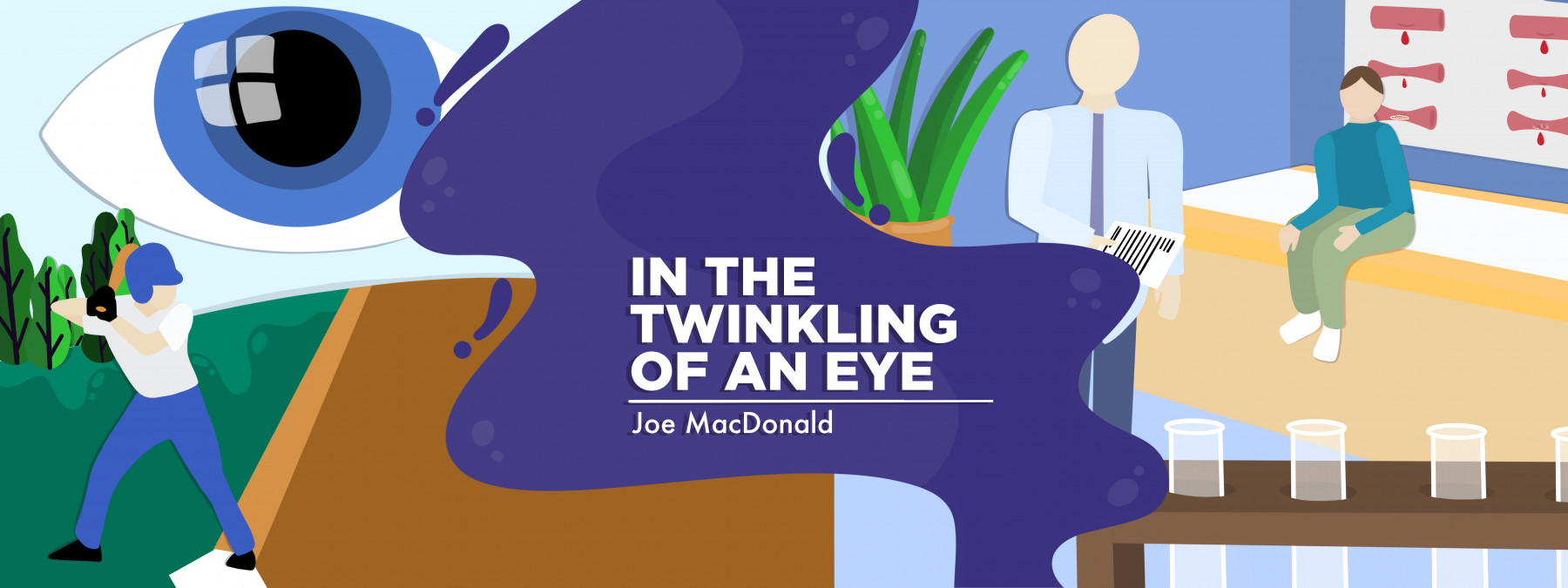My tremor disorder helps me understand my sons’ hemophilia
We understand how visible symptoms can draw unwelcome attention

In my years of discussing my sons’ bleeding disorders here, I too have had a hereditary disorder: essential tremors, which I inherited from my mother’s side of the family.
While my disorder isn’t life-threatening, several factors seem eerily similar to my sons’ struggles with hemophilia. My tremors don’t make me bleed, of course, but I do know what it feels like to draw attention to myself, which can happen when I hold a cup of coffee in my hand while walking across a room.
Caeleb, my youngest son, gets similar attention because of his mobility problems, caused by internal bleeding episodes in his right knee and ankle. He knows what it’s like to walk through a room with the aid of a cane or wheelchair, and once told me how embarrassed he felt to have to sit in a wheelchair in elementary school. He felt like the entire world felt sorry for him and was treating him like an invalid.
Caeleb, now 19, and I sat down recently to talk about our struggles. “Dad, I just wanted to be a ‘normal’ kid, but I couldn’t go to school without help,” he said. “If I tried to walk by myself, I could take three or four steps and then uncontrollable pain would take over as I started another internal bleed into my right knee or ankle. It was a nightmare.”
Bonding yields understanding
I put my arm around his shoulders and said, “While I struggle with the shakes [the nickname I give my essential tremors at home], I could not imagine dealing with my medical issues at an early age. You were only 6 or 7 years old when you struggled so badly that you stayed in the hospital for weeks at a time in pain. I wanted to take your struggles away from you, but I couldn’t. The most I could do was hold your hand or build Lego buildings to distract you from the pain.”
While I could never understand what it was like when Caeleb had the feeling that scores of needles were piercing his skin repeatedly, I did understand how it felt to struggle with a disorder that’s visible to the public. When I have a tremor, everyone turns attention to me. I’ve even had people loudly proclaim, “Joe, you are shaking!”
I want to respond, “No, duh!” Fortunately, I keep my wits about me, move to my seat, and pretend nothing’s wrong.
I also talked with my oldest son, Julian, 29, about the same issue. As we spoke, he reminded me of the time we went to Disney World when he was 5 years old.
“Dad, do you remember when we swam in our hotel pool?” he asked. “I remember meeting a girl about my age, and she looked at me and asked, ‘What is that?’ I told her, ‘That’s just my port.’ I was shocked when she asked me, because when I was 5, I thought everybody had a port-a-cath.”
I did remember that event. I asked Julian if he recalled the girl’s response. “I sure do,” he said. “She thought it was cool.”
We laughed as we talked about our craziest memories of Julian’s experiences with hemophilia. His relationship with his bleeding disorder has been much different from Caeleb’s, but one thing rang true for both: My sons know what it’s like to struggle with a medical condition in public. So do I.
When I share my experiences with essential tremors, I’m acutely aware that my struggles pale in comparison with what my sons face every day. However, our bit of common ground has allowed me to see their challenges more clearly.
As their caregiver, I’m committed to understanding what it’s like to walk in their shoes as they navigate medical treatments and adjust to a world where excessive bleeding limits their abilities. Our shared understanding not only fosters empathy, but also opens up new avenues of communication that we might never have explored otherwise.
Note: Hemophilia News Today is strictly a news and information website about the disease. It does not provide medical advice, diagnosis, or treatment. This content is not intended to be a substitute for professional medical advice, diagnosis, or treatment. Always seek the advice of your physician or another qualified health provider with any questions you may have regarding a medical condition. Never disregard professional medical advice or delay in seeking it because of something you have read on this website. The opinions expressed in this column are not those of Hemophilia News Today or its parent company, Bionews, and are intended to spark discussion about issues pertaining to hemophilia.








Jo Stasi
I love how you always put a positive spin on everything! With love and respect, Jo